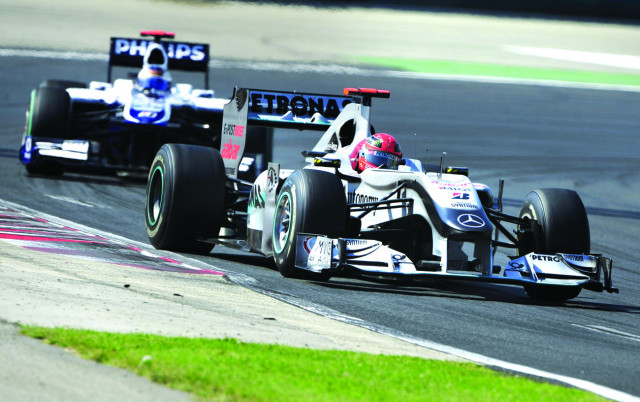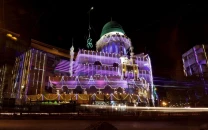Scanners — a deterrent or formality?

“The Rawat Scanner is operational 24 hours, but the one at Golra works only 8 hours during the night shift,” a police official who is part of operations team told The Express Tribune.
The two scanners are only used to check suspicious looking trucks or containers, he added.
The scanners were first installed at the Golra and Rawat entry points in April 2010 respectively. However, they were removed after a couple of days as they stirred a debate within the ranks of the government and police authorities about whether they could actually detect explosives.
Many police officials were of the view that they were not ‘explosives detectors,’ but actually cargo scanners, which could only detect a few types of explosives, provided they were in large quantity, a senior police official told The Express Tribune on the condition of anonymity.
He further said that the police authorities were compelled to use these scanners as they had been purchased on heavy loans from China. Each scanner cost the government of Pakistan around Rs25 billion, excluding customs and installation charges.
He added that the process of scanning a vehicle through the detector was so cumbersome that it was impossible to scan all vehicles entering Islamabad. “There are chances that a car bomb may sneak through,” a terrorism expert, Amir Rana, Director of Pakistan Institute of Peace Studies said. However, Rana said these scanners did offer some degree of deterrence.
Another senior police official who spoke to The Express Tribune on the condition of anonymity said there were better explosives detectors available in the international market.
“There are machines available that can detect explosives from a distance of 500 yards,” he said. A police official who was a newly-trained technician on the scanner also suspected that the machine was not a detector. “Basically, it only gives an image of any unusual item hidden in the body of the vehicle. This can only work if the image is of a weapon, as explosives cannot be detected by their images,” he said.
Published in the Express Tribune, June 6th, 2010.



















COMMENTS
Comments are moderated and generally will be posted if they are on-topic and not abusive.
For more information, please see our Comments FAQ